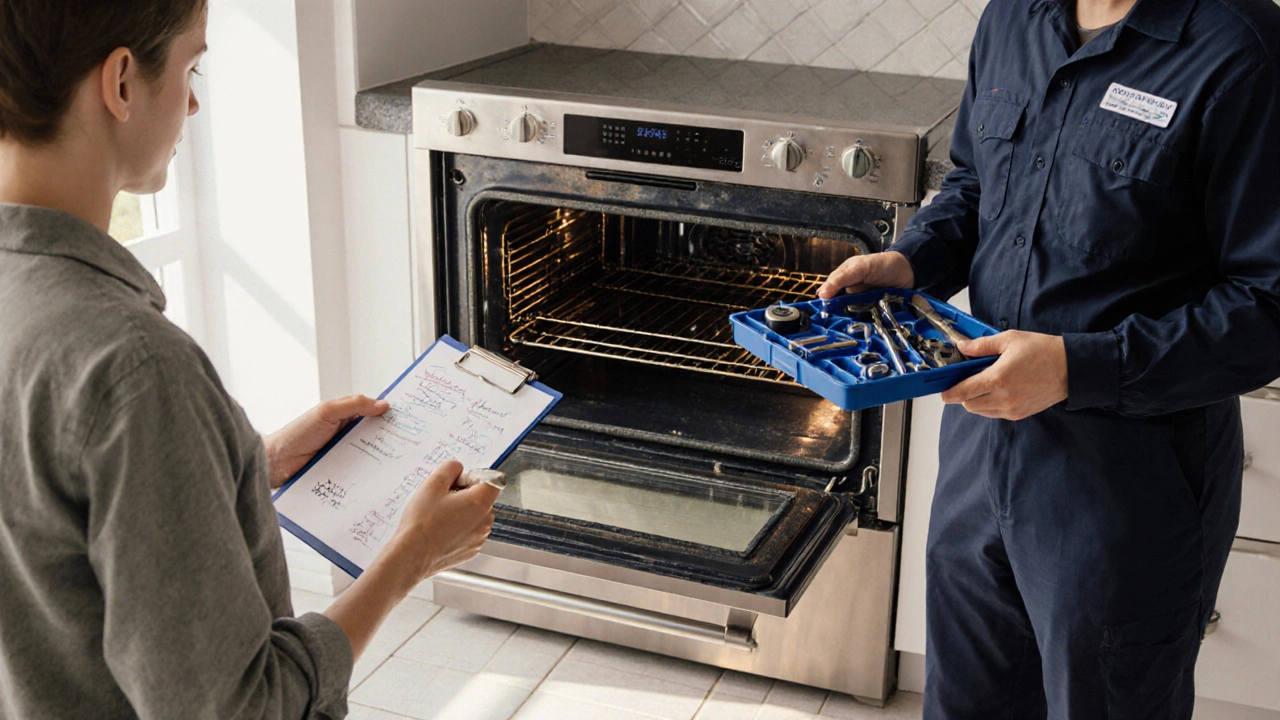Appliance Repair Cost: What You Need to Know
When talking about Appliance Repair Cost, the total amount you spend to get a broken household device working again, including parts, labor and travel fees. Also known as repair pricing, it varies a lot depending on the appliance type and the fault. For example, Oven Repair Cost, covers replacing heating elements, thermostat boards or fixing wiring issues is usually higher than a simple thermostat swap, while Microwave Repair Cost, often involves a new fuse or magnetron replacement. Even within the same kitchen, a Washing Machine Repair Cost, can range from a cheap belt change to an expensive motor rebuild. Appliance repair cost therefore encompasses both the price of parts and the labour needed to diagnose and fix the issue. It requires a clear understanding of what went wrong, and it influences the decision whether to repair or replace the unit. Knowing these basics helps you avoid surprise invoices and makes the whole process feel a lot less stressful.
Key Drivers Behind the Price Tag
Several factors push the numbers up or down. Age is a big one – a ten‑year‑old fridge will often need a pricier compressor swap than a newer model that just needs a sealed‑system clean. The specific fault matters too; a broken control board on an oven usually costs more than a faulty door latch on a dryer. Location plays a part as well – service calls in Glastonbury might include travel fees, especially for urgent after‑hours visits. Appliance Maintenance, regular cleaning, filter changes and early‑fault checks can keep these costs from blowing up by catching problems before they need major parts. Energy efficiency is another hidden driver: a well‑maintained appliance uses less power, so you save on electricity bills while also extending the life of the unit. All these pieces together form a web of cost drivers, meaning the final repair price is rarely a simple flat rate.
When you start budgeting, think about the typical price ranges you’ll see. A basic oven heating element replacement usually sits between £80‑£150, while a full control board swap can hit £250‑£400. Microwave fuse fixes are often under £100, but a new magnetron can push the bill past £200. Washing machines usually see £120‑£250 for common faults like pump or motor issues. Beyond the raw numbers, look for a provider who offers a clear quote, a written guarantee on parts, and a transparent labour charge. A Professional Technician, someone with certified training and insurance adds confidence that the job will be done right the first time, potentially saving you from repeat visits. Armed with this knowledge, you’ll be able to weigh the cost of a repair against the price of a new appliance, factor in energy savings, and decide what makes sense for your budget. Below you’ll find a curated list of articles that dive deeper into specific repair scenarios, cost breakdowns and DIY tips, giving you the tools you need to make an informed choice.

Is it cheaper to repair or replace a refrigerator?
Deciding whether to repair or replace your fridge depends on its age, repair cost, and energy efficiency. Learn when to fix it and when to buy new to save money and avoid waste.

Oven Repair vs Replacement: Which Is Cheaper?
Find out whether fixing your oven or buying a new one saves you more money. Get cost breakdowns, decision tips, and a handy repair vs replace comparison.